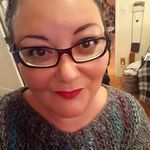
Email us to revise your entry or request it to be deleted.
Patty Berne
These are the yes/no and closed vocabulary terms that the Portal uses to filter search
results. They are not
necessarily the words this individual uses for themselves.
Learn more
Trans
No Data
BIPOC
Yes
Deaf and disabled
Yes
Gender identities
No Data
Race/ethnicities
Black, East Asian
PATRICIA BERNE is the Co-Founder, Executive and Artistic Director of Sins Invalid. Berne’s training in clinical psychology focused on trauma and healing for survivors of interpersonal and state violence. Their professional background includes advocacy for immigrants who seek asylum due to war and torture; community organizing within the Haitian diaspora; international support work for the Guatemalan democratic movement; work with incarcerated youth toward alternatives to the criminal legal system; offering mental health support to survivors of violence; and advocating for LGBTQI and disability perspectives within the field of reproductive genetic technologies. Berne’s experiences as a Japanese-Haitian queer disabled woman provides grounding for her work creating “liberated zones” for marginalized voices. Berne was awarded the Disability Futures Fellowship in 2020 and they are widely recognized for their work to establish the framework and practice of disability justice.
Sins Invalid. “Sins Invalid Staff,” n.d. https://www.sinsinvalid.org/staff.Patricia Berne is the director of Sins Invalid, and is a Co-Founder of the Sins Invalid performance project. A first time filmmaker, Berne's experiences as a Japanese-Haitian queer disabled woman provide grounding for her work creating “liberated zones” for marginalized voices.
New Day Films. “Patty Berne,” n.d. https://www.newday.com/filmmakers/patty-berne.Patty Berne is the Co-Founder, Executive and Artistic Director of Sins Invalid, a disability justice-based performance project centralizing disabled artists of color and queer and gender non-conforming artists with disabilities. Berne’s experiences as a Japanese-Haitian queer disabled woman provides grounding for her work creating “liberated zones” for marginalized voices. Berne is widely recognized for their work to establish the framework and practice of disability justice which centers intersectionality and the ways diverse systems of oppression amplify and reinforce one another. As they explain, the disability justice framework was a reaction to the ways that the U.S. disability rights movement “invisibilized the lives of peoples who lived at intersecting junctures of oppression – disabled people of color, immigrants with disabilities, queers with disabilities, trans and gender non-conforming people with disabilities, people with disabilities who are houseless, people with disabilities who are incarcerated, people with disabilities who have had their ancestral lands stolen, amongst others.” Berne’s training in clinical psychology focused on trauma and healing for survivors of interpersonal and state violence. Their professional background includes advocacy for immigrants who seek asylum due to war and torture, community organizing within the Haitian diaspora, international support work for the Guatemalan democratic movement, work with incarcerated youth toward alternatives to the criminal legal system, offering mental health support to survivors of violence, and advocating for LGBTQI and disability perspectives within the field of reproductive genetic technologies.
Speak Out Now. “Biography,” n.d. https://www.speakoutnow.org/speaker/patty-berne.Email us to revise your entry or request it to be deleted.



